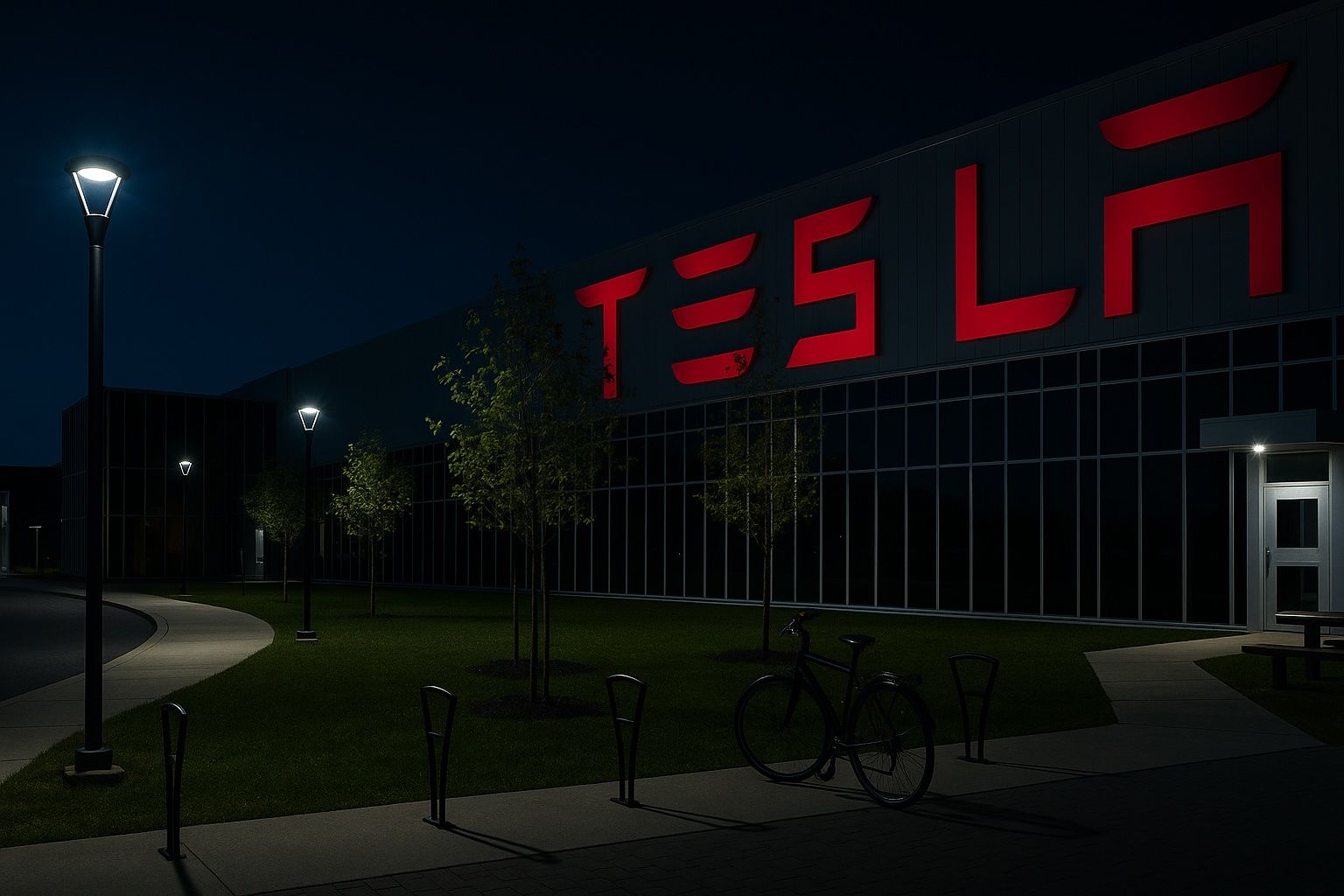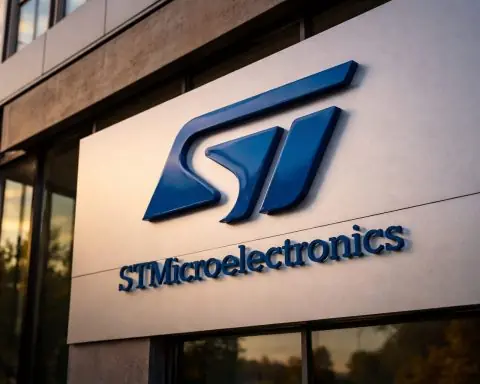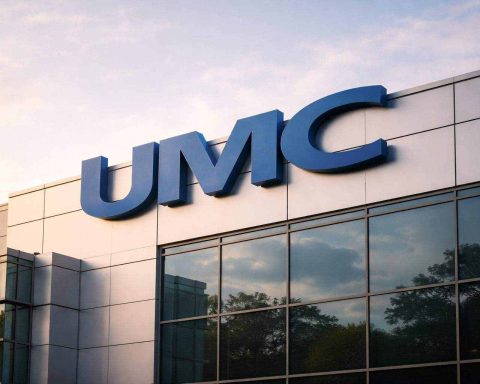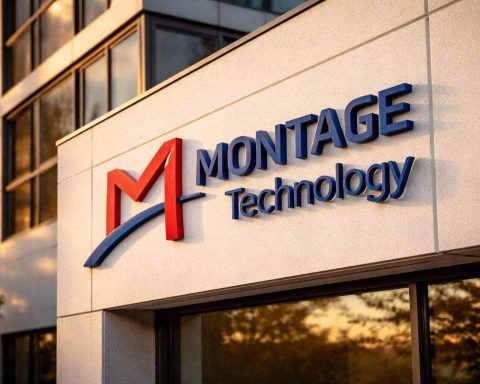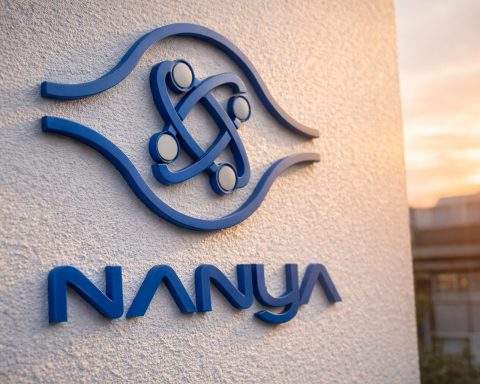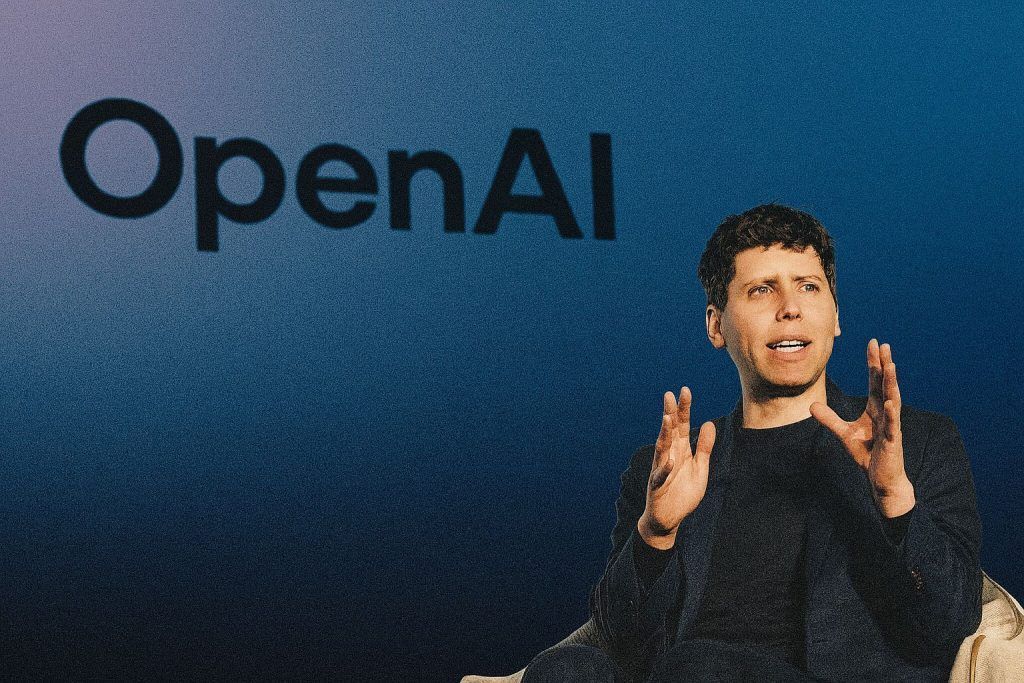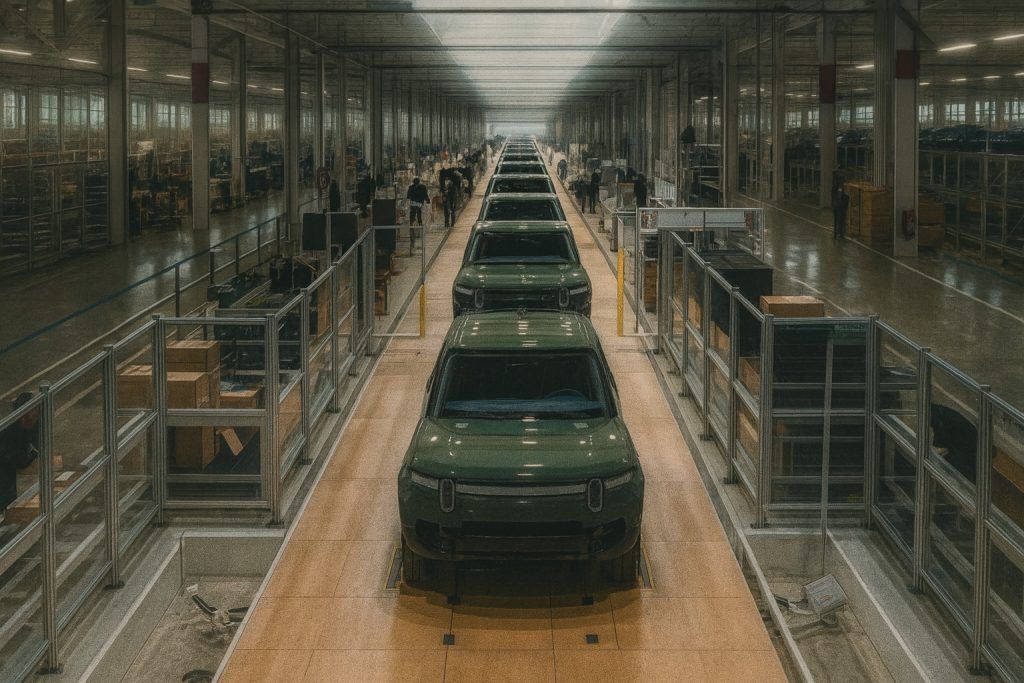- $1B Buy Disclosed: Elon Musk revealed via SEC filing that he bought ~2.57 million Tesla shares (~$1 billion worth) on September 12, 2025 – his first open-market Tesla stock purchase since early 2020 foxbusiness.com 1 .
- Immediate Rally: Tesla’s stock surged about 6% on the news, briefly erasing its year-to-date decline and hitting multi-month highs investing.com timesofindia.indiatimes.com. Shares jumped as high as ~$420 (up from ~$396), before settling up ~3.5% by Monday’s close 2 .
- Confidence Signal: Musk’s move is seen as a strong vote of confidence in Tesla amid a sluggish EV market. It coincides with Tesla’s pivot toward AI, autonomous “robotaxi” tech, and robotics to drive future growth foxbusiness.com. “We see Musk’s stock purchase as a clear signal of confidence,” noted William Blair analyst Jed Dorsheimer as Tesla’s stock popped on the news 3 .
- Biggest Buy Ever: This is Musk’s largest personal stock buy to date by dollar value, far eclipsing prior token purchases (e.g. ~$10 million in 2020) investing.com. It bucks a long trend of insider selling – Musk spent 2021–2022 offloading nearly $40 billion of Tesla shares (mostly to fund his Twitter acquisition and pay taxes) markets.businessinsider.com 4 .
- Timing & Context: The purchase comes just as Tesla’s board proposed a record-breaking $1 trillion incentive package to keep Musk as CEO for the next decade tipranks.com. Musk has been seeking greater control (aiming for 25% voting power) and even hinted he’d focus on AI projects outside Tesla if not achieved foxbusiness.com. His $1B buy – using his own money – sends a message that “Tesla is still my favorite child”, as Bloomberg’s Matt Levine quipped bloomberg.com 5 .
- Analyst Reactions: Wall Street analysts largely view the buy as bullish. “Musk is now in a ‘wartime CEO’ mode… music to the ears of Tesla bulls,” says Wedbush’s Dan Ives, who sees Musk refocusing on Tesla’s AI and robotaxi vision tipranks.com. Still, the Street’s consensus on TSLA remains mixed (14 Buy, 13 Hold, 7 Sell) with an average price target ~21% below current levels tipranks.com, reflecting some skepticism even after Musk’s vote of confidence.
Musk’s $1 B Tesla Share Purchase: Inside the Big Bet
What Happened: In a surprise move, Elon Musk purchased roughly 2.5 million Tesla shares for about $1 billion on Friday, Sept. 12, 2025 timesofindia.indiatimes.com. A regulatory Form 4 filing on Monday disclosed that Musk’s buying took place through his personal trust, at share prices ranging from ~$372 to $397 foxbusiness.com. This marked Musk’s first open-market buy of Tesla stock in over five years, the last one being in early 2020 foxbusiness.com. The timing and scale of the purchase make it an exceptional event – Musk used his own cash (a rare step for him) to significantly boost his stake.
Why Now? While Musk did not publicly spell out his reasons, the context provides clues. Tesla’s CEO has framed the buy as a show of confidence in the company’s future foxbusiness.com. It comes as Tesla is aggressively shifting focus toward artificial intelligence initiatives, self-driving “robotaxi” services, and advanced robotics – even as the broader EV market faces sluggish demand foxbusiness.com. In recent months, Tesla’s growth in vehicle sales has leveled off amid rising competition and political controversy, so Musk’s move sends a bold message that he remains bullish on Tesla’s long-term vision. Jed Dorsheimer of William Blair said Musk’s purchase is “a clear signal of confidence from Musk”, adding that Tesla’s stock “surged on the news” in response 3 .
Tesla CEO Elon Musk’s $1B stock purchase – his first since 2020 – was disclosed via SEC filing on Sept. 15, 2025, jolting markets and lifting Tesla’s share price. foxbusiness.com 2
Beyond signaling optimism, strategic timing likely played a role. Just days before Musk’s buy, Tesla’s board unveiled an eye-popping $1 trillion performance-based pay package for Musk tipranks.com. This proposed plan (to be voted on by shareholders in November) would grant Musk up to 12% of Tesla’s shares over the next decade if he meets extremely ambitious targets – including massive boosts in production, profitability, and Tesla’s market cap timesofindia.indiatimes.com. Essentially, the board is trying to lock in Musk’s commitment to Tesla amid concerns about his distractions. Musk’s $1B stock purchase can be seen as his own counter-move: rather than wait for an incentive, he directly invested more of his wealth into Tesla now. “Tesla recently proposed giving Musk a $1 trillion pay package … and him buying $1 billion of stock with his own money sends a similar message,” Bloomberg’s Matt Levine observed bloomberg.com. The message? Musk is “all-in” on Tesla’s success – he’s willing to put significant skin in the game.
Growing His Stake: Musk’s buy also incrementally boosts his ownership stake in Tesla. Before the purchase, Musk controlled roughly 13% of Tesla’s outstanding shares foxbusiness.com (around 412 million shares by late 2024). Adding 2.57 million shares nudges his stake only slightly higher (around 13.1%), but symbolically it moves him closer to the greater voting power he’s been seeking. Musk has reportedly told insiders that unless he achieves about 25% voting power, he might rather devote his efforts in AI and robotics to ventures outside Tesla foxbusiness.com. Gaining 25% would likely require either further share purchases or new stock grants. This $1B purchase – the largest one-time buy in Musk’s career – suggests he’s asserting more control and confidence in Tesla’s direction, rather than relying purely on board-awarded stock. It’s a stark reversal from the dilution of his stake that occurred when he sold shares to finance other ventures (like Twitter/X).
Historical Comparison: Musk’s Previous Tesla Stock Moves
Elon Musk is no stranger to dramatic Tesla stock transactions – but until now, they’ve mostly been sales, not buys. To put this latest purchase in perspective, one has to look back several years:
- Rare Buys: Musk’s last notable open-market purchase of Tesla stock was in February 2020, when he picked up around $10 million worth (≈200,000 shares) investing.com. Prior to that, he made only a handful of relatively small buys (for example, ~$25 million in mid-2018/2019 in separate insider purchases). These were viewed as token gestures of confidence during Tesla’s early growth and occasionally during capital raises. By contrast, the $1 billion buy in 2025 is by far Musk’s largest ever — “his largest stock purchase ever by dollar amount,” as one analyst noted investing.com. The rarity of Musk buying his own company’s stock cannot be overstated: it’s been five years since he last bought shares on the open market electrek.co, making this move a significant departure from the norm.
- Major Sales: In recent years, Musk was far more often a seller. Notably, in late 2021 he began a selling spree, cashing out huge chunks of Tesla stock. From November 2021 through late 2022, Musk offloaded nearly $40 billion worth of Tesla shares markets.businessinsider.com. This unprecedented liquidation was driven by a mix of factors. One was Musk’s hefty tax bill after exercising stock options in 2021. Another was his need to raise cash for the $44 billion acquisition of Twitter (now X) in 2022. In fact, “Musk has sold almost $40 billion of his Tesla shares” over that period, Reuters reported in December 2022 reuters.com, in part spooking investors as it appeared Tesla’s CEO was diverting focus and funding to his new social media venture. By the end of 2022, Musk’s sales had helped drive Tesla’s stock down to two-year lows, and investors worried about his “distraction with Twitter” reuters.com reuters.com. Musk himself acknowledged he “had to sell some stock” to finance the Twitter deal and later said he was done selling.
- Turning the Tide: Given that history, Musk’s new $1B buy represents a 180-degree turn. As TheStreet noted, it’s a “massive turn from Musk’s 2021–2022 selling spree of close to $40 billion in Tesla stock” thestreet.com. Instead of reducing his Tesla exposure, Musk is increasing it – something shareholders haven’t seen him do at scale in a long time. The last time Musk increased his ownership via a significant purchase (outside of stock option exercises) was arguably during Tesla’s 2013 capital raise, when he privately bought $100 million of shares to show faith in the company. Since then, apart from minor buys, his stake mainly grew through awarded stock options and split adjustments, not open-market purchases. Thus, the symbolism of Musk putting $1 billion of his own money into Tesla now is powerful: it telegraphs that he believes Tesla’s shares are undervalued and that exciting growth lies ahead – enough that he’s willing to bet a chunk of his fortune on it.
- Insider Trend Reversal: Musk’s buy also stands out against Tesla’s own insider trading trends. Over the past decade, Tesla insiders have overwhelmingly been sellers, not buyers. Fred Lambert of Electrek points out that for years “Tesla insiders have been consistently selling… with virtually no one buying” electrek.co. Even Musk’s last interaction with Tesla stock before this was selling tens of billions of dollars’ worth to fund Twitter electrek.co. Now, by buying instead of selling, Musk has broken that pattern. Long-time Tesla watchers see this as a positive reversal – a signal that the CEO sees more upside than downside at current prices electrek.co. It also aligns Musk’s interests even more with shareholders’, since he’s voluntarily increasing his exposure to Tesla’s stock price movements (beyond the huge equity stake he already had).
In short, Elon Musk’s trading history with Tesla stock has flipped: from being the world’s most high-profile seller of his own company’s shares in 2021–22, he’s now become an aggressive buyer in 2025. The move underscores Musk’s confidence and perhaps a desire to make amends for the confidence he dented by selling earlier. As investors, seeing Musk put money in rather than take money out of Tesla is a refreshing change – one that many interpret as a bullish omen for the company’s trajectory.
How This Stacks Up: Musk’s Buy vs. Other Insider Purchases in Tech & EV
Musk’s $1 billion stock purchase isn’t just big for Tesla – it’s virtually unprecedented across the tech and automotive sectors for an insider buy of this magnitude. Corporate insiders (CEOs, founders, top executives) do occasionally buy their own company’s stock on the open market, usually to signal confidence, but rarely at a scale of hundreds of millions or more. Here’s how Musk’s move compares:
- One of the Largest Ever: Musk’s $1B buy instantly ranks among the largest insider stock purchases on record for a U.S. tech company. Such a move is exceedingly rare outside of founder-led investment rounds or buyouts. In fact, when Dustin Moskovitz (co-founder and CEO of Asana) aggressively bought up over $1 billion of Asana’s stock in 2021–2022, analysts called it likely the “first time a single insider has ever purchased $1 billion worth of stock in a non-buyout scenario” nasdaq.com. Moskovitz’s buying spree – driven by his belief in his company’s long-term prospects – was considered the most aggressive insider buying campaign in history nasdaq.com nasdaq.com. Elon Musk’s purchase is on that same extraordinary level, and arguably even more noteworthy because of Tesla’s size. Whereas Asana was a mid-cap software firm, Tesla is one of the world’s most valuable companies – yet its CEO just spent $1B of personal funds to increase his stake. It underscores Musk’s unique role as both a visionary founder and a hyper-wealthy individual willing to significantly reinvest in his own enterprise.
- EV Sector Context: Within the electric vehicle industry, there’s no real precedent for a CEO personally buying this much stock on the open market. Founders of EV startups often hold large stakes from initial ownership, but additional insider buys are usually modest (or they rely on external capital raises). For example, we haven’t seen the CEOs of rival automakers like Ford or GM make comparably large personal share purchases; if anything, those executives tend to acquire shares via compensation and sometimes sell portions over time. Notably, just recently GM’s CEO Mary Barra made headlines for selling a chunk of her stock (nearly 40% of her holdings) amid market volatility gmauthority.com ainvest.com, which is the more common pattern. Musk’s decision to buy a huge block bucks the general trend in the auto industry, signaling that Tesla’s leader is doubling down while others play it cautious or cash out.
- Tech Insiders – Buying vs Selling: Musk’s bold purchase also comes during a period when many tech insiders have been net sellers of their stock. In 2025 especially, numerous high-profile tech CEOs and founders have unloaded shares amid strong market rallies. For instance, Oracle’s CEO Safra Catz led all U.S. insiders in sales last quarter, selling $1.83 billion of Oracle stock in Q2 2025 finance.yahoo.com. Likewise, Jeff Bezos trimmed Amazon shares (about $0.7B sold in Q2), and Michael Dell sold large stakes in Dell Technologies ainvest.com. The typical narrative has been insiders taking some profit off the table. Musk’s move is the opposite – instead of cashing in on Tesla’s earlier run-up, he’s wagering more capital on Tesla’s future. “Moskovitz’s internal optimism bucks a recent trend… a massive insider sell-off… last year,” one analysis said of the Asana CEO’s buys nasdaq.com – the same can be said of Musk in 2025. In a climate where most billionaire executives were lightening up their holdings, Musk went all-in, making a contrarian bet on his company.
- Larry Ellison’s Tesla Stake: One semi-comparable case in Tesla’s own orbit is Larry Ellison, the Oracle co-founder who joined Tesla’s board in 2018. Ellison quietly acquired a sizable Tesla stake (reportedly around $1 billion worth of shares) before his board appointment, which came to light in late 2018. However, Ellison was an outside investor at the time, not a Tesla executive, and his purchase was more of a one-time investment rather than a signal from Tesla’s management. Musk’s $1B buy, by contrast, is an insider signal coming straight from the CEO’s office. It carries different weight in the market’s eyes: Ellison’s stake was seen as a savvy investor’s vote of confidence, whereas Musk’s buy is seen as the ultimate insider (the CEO himself) effectively saying “I believe our stock is a bargain.”
In summary, Elon Musk’s purchase is virtually unmatched among insider trades in the EV/tech world. Only Dustin Moskovitz’s $1B+ Asana buying spree offers a recent parallel of similar scale and intent nasdaq.com nasdaq.com. Most other tech leaders have not made such dramatic open-market bets on their own companies – if anything, many have been selling into strength. Musk’s move therefore sets him apart, reinforcing his maverick reputation. It also puts pressure (tacitly or not) on other executives: if the world’s richest person is willing to pour more of his wealth into his company at these valuations, it begs the question what others truly think of their own companies’ upside. For Tesla shareholders, it’s a reassuring sign that the captain is loading up on his own ship rather than quietly sailing to other seas.
Market Reaction: Tesla Stock Soars and Investors Cheer
The stock market wasted no time registering Elon Musk’s big buy. Tesla’s stock (TSLA) jumped sharply as soon as the news hit, reflecting renewed investor enthusiasm:
- Initial Surge: On Monday, Sept. 15 (the first trading day after Musk’s disclosure), Tesla shares leapt about 5–6% in early trading cbsnews.com tipranks.com. In pre-market action, the stock was up as much as 7–8%, briefly crossing $420 per share investing.com timesofindia.indiatimes.com. This one-day pop added tens of billions of dollars to Tesla’s market capitalization. The rally brought Tesla’s stock to its highest levels in roughly eight months seekingalpha.com, and notably pushed the stock into positive territory for 2025 to date. (Tesla shares had fallen in the first half of the year but this surge helped “erase a year-to-date decline” 6 .)
- By the Close: As the day wore on, some of the initial euphoria moderated – a common occurrence as traders take quick profits. Tesla stock still closed up about 3.5% on Monday (around $410/share) foxbusiness.com, a robust gain that vastly outperformed the broader market. In effect, the Musk-buy news added roughly $15 billion to Tesla’s market value overnight. The spike demonstrated how closely tied Tesla’s valuation is to investor perception of Musk’s involvement. It wasn’t a product announcement or earnings beat that drove the jump – it was purely Musk’s act of buying that boosted confidence and, by extension, the share price.
- Trading Frenzy and Speculation: The revelation of Musk’s purchase also triggered a frenzy in Tesla options trading. Some traders had placed very bullish bets right before the news – buying short-term call options at strike prices far above Tesla’s then-price (e.g. calls betting on Tesla >$430 within two weeks) electrek.co. Once Musk’s buy became public and the stock spiked, those speculative options exploded in value (reportedly up 1,000%), leading to chatter about whether certain traders somehow anticipated the news electrek.co electrek.co. This raised eyebrows about possible information leaks or just lucky timing. Regardless, the options market activity underscored how dramatic and unexpected Musk’s move was – it caught most of Wall Street off guard, and those who bet on a near-term surge in Tesla scored big. Electrek noted the timing was “highly suspicious” given there were no obvious catalysts due in that period electrek.co electrek.co. (There is no evidence of wrongdoing by Musk, but the incident fueled speculation about insider trading by others and calls for SEC scrutiny in some corners.)
- Before the News – 2025 Context: It’s important to note what led up to this. Before Musk’s purchase, Tesla’s stock had been under pressure in 2025. The share price had declined through the first few months of the year, at one point down over 20% year-to-date tipranks.com. Several factors weighed on Tesla: softer EV demand in key markets, rising interest rates, and an unusual situation of Musk being heavily involved in politics (he had taken on a role in President Donald Trump’s administration earlier in the year, which some customers and investors saw as a distraction or source of controversy cbsnews.com timesofindia.indiatimes.com). Additionally, Tesla faced intensifying competition – legacy automakers (GM, Ford) and Chinese EV makers were chipping away at its market share timesofindia.indiatimes.com. Amid these challenges, Tesla’s Q1 and Q2 deliveries had come in below some expectations, and the stock languished well below its late-2024 highs.
However, sentiment started improving in mid-2025 as Musk began stepping back from political duties and refocusing on Tesla. Over the summer, positive developments – like pilot launches of Tesla’s driverless robotaxis in Austin and other cities – helped the stock claw back losses tipranks.com. By early September, TSLA was roughly flat for the year, but investors remained split on its outlook. That’s when Musk’s $1B buy dropped like a spark on dry tinder. It galvanized the market’s confidence in Tesla, suggesting that if Musk was doubling down, perhaps the worst was behind the company. One Yahoo Finance headline proclaimed: “Musk’s $1 Billion Tesla Stock Buy Sends Shares Up for 2025”, capturing how the purchase reversed the stock’s early-year slump 7 .
- Broader Market Impact: Musk’s purchase didn’t just lift Tesla; it gave a jolt to the wider EV and tech sector stocks (at least briefly). High-growth tech names often move in sympathy with each other, and Tesla is a bellwether for the EV industry. After the news, other EV-related stocks ticked up as well, possibly on optimism that Tesla’s resurgence could signal broader strength in the sector. For example, shares of EV startups like Rivian and Lucid saw minor bumps in Monday trading, and even tech indices got a small boost, given Tesla’s large weighting in the Nasdaq 100. The effect wasn’t enormous or long-lasting for others, but it showed how Musk’s actions can sway market sentiment beyond just Tesla. It also highlighted Tesla’s outsized influence: as one of the world’s most valuable companies, any surge in TSLA contributes to indices and can improve risk appetite generally.
In essence, the market’s reaction to Musk’s buy was resoundingly positive – a sharp rally that signaled renewed faith. While some of the initial spike tapered off, Tesla’s stock held onto a meaningful gain, suggesting investors saw this insider buy as more than a one-day headline. It reinforced a narrative that Musk is re-engaged and bullish on his own company, which can be a self-fulfilling vote of confidence. When the person arguably most in-the-know about Tesla’s prospects makes a $1B bet on it, many investors feel safer following suit. That psychological impact was plain to see in the trading volumes and price action.
Investor Sentiment and Expert Opinions
Elon Musk’s big stock buy has become the talk of Wall Street, prompting a range of reactions from analysts, investors, and industry experts. Overall sentiment tilted positive, as many saw the move as a bullish signal for Tesla’s future. However, there are also notes of caution about the road ahead. Here’s a roundup of what experts are saying:
- “Clear Signal of Confidence” – Bullish Analysts: Numerous analysts interpreted Musk’s purchase as a strong endorsement of Tesla’s outlook. “With Musk’s purchase… we are becoming more bullish,” wrote Jed Dorsheimer of William Blair, calling it a “clear signal of confidence from Musk” foxbusiness.com. He noted that Tesla stock surged on the news, which in his view, combined with improving fundamentals like vehicle delivery momentum and progress in robotaxis, bodes well. Likewise, Morgan Stanley’s team (in a note to clients) highlighted that insider buys of this magnitude “typically signal management’s belief that the stock is undervalued and poised for growth.” This aligns with a comment from Investing.com that such rare insider buying “provides a bullish signal” and suggests Musk sees Tesla as undervalued at current prices investing.com 8 .
- Dan Ives (Wedbush): AI “Wartime CEO” Mode: One of the most vocal Tesla watchers, Dan Ives of Wedbush, hailed Musk’s move and the context around it. Ives has long argued that Tesla is entering a pivotal period, especially in autonomous driving. In his latest note, he applauded the company’s huge new incentive plan to keep Musk on board and viewed Musk’s personal buy as further commitment. “We believe Tesla and Musk are heading into a very important chapter of their growth story as the AI Revolution takes hold and the robotaxi opportunity is now a reality on the doorstep,” Ives said tipranks.com. He emphasized Tesla’s pole position in the race toward self-driving vehicles, valuing the autonomous and AI opportunity at “around $1 trillion” for the company tipranks.com. Crucially, Ives described Musk as now being in “wartime CEO” mode, laser-focused on Tesla’s technological battle ahead – “music to the ears of Tesla bulls,” in Ives’ words tipranks.com. In other words, Musk appears re-energized to fight off competition and lead Tesla into its next era, which is exactly what bullish investors wanted to hear. Off the back of the news, Wedbush reiterated its Outperform (Buy) rating on TSLA, with Ives upping his price target to $500, citing the strengthened confidence that Musk will steer Tesla aggressively in AI and EV expansion.
- Caution from Some Corners: Despite the overall enthusiasm, not everyone is fully convinced that a $1B buy solves all of Tesla’s challenges. Some analysts note that Tesla’s stock had already run up significantly in the past few months, and at around $400+ per share it bakes in a lot of optimism. “Wall Street… has a fairly divided opinion on TSLA,” observed TipRanks, pointing out that the consensus rating is essentially Hold/Neutral and the average 12-month price target (~$314) sits well below current trading levels tipranks.com. From this view, Musk’s purchase is encouraging, but skeptics argue Tesla’s valuation remains stretched relative to near-term fundamentals (like an expected ~50% drop in earnings this year due to price cuts and higher costs). Some bearish commentators framed the rally as an opportunity to take profits. For instance, a Seeking Alpha piece labeled the price jump “irrational,” reasoning that Musk’s engagement was already expected and that Tesla still faces “sales woes and [a] lofty valuation” that weren’t erased by one insider buy seekingalpha.com. In the same vein, a portfolio manager interviewed on CNBC noted that while Musk’s show of faith is a “nice boost,” it doesn’t change rising competition in the EV space or Tesla’s need to execute flawlessly on ambitious projects like robotaxis to justify its market cap.
- Corporate Governance Perspective: Some experts focused on what Musk’s buy means for Tesla’s governance and Musk’s relationship with the board/shareholders. There is a sense that Musk may have been partly motivated by the board’s colossal $1 trillion pay proposal – essentially demonstrating that he’s committed to Tesla without needing such an eye-popping reward (or perhaps to strengthen his negotiating position regarding any compensation plan conditions). “The board wants to ensure Musk is all-in… and Musk buying $1B of stock with his own money sends a similar message,” as Bloomberg’s analysis noted bloomberg.com. It shows alignment: Musk is literally investing alongside shareholders, which alleviates some concerns that he might neglect Tesla for other pursuits. However, governance advocates also point out that Musk’s outsized influence is double-edged. On one hand, his engagement can drive success; on the other, it underscores Tesla’s key-man risk – so much of Tesla’s fate rests on Musk’s shoulders and interest. The new pay plan, combined with Musk’s stock buy, indicates Tesla is doing what it takes to tie Musk’s fortune to the company’s performance even more tightly, hopefully for the benefit of all shareholders. Still, even some Tesla bulls have been uneasy about the sheer scale of the proposed pay package (the largest in corporate history if approved). Musk’s willingness to invest his own funds might sway some investors to approve the package, seeing that he’s not simply asking for rewards without personal risk.
- Investor Sentiment – The Tesla Community: Among Tesla’s investor fanbase (retail investors and long-term shareholders), the mood was jubilant after the news. On forums and social media, many praised Musk for “putting his money where his mouth is.” It has been a common refrain in recent years that Musk should stop selling Tesla shares and ideally buy more if he truly believes in the vision; now he’s done exactly that. This has reinvigorated the Tesla bulls. Prominent Tesla-focused influencers on X (Twitter) lauded the buy as a “huge confidence booster” and speculated that Tesla’s recent share weakness may have been a buying opportunity that Musk himself seized. Some retail investors likened Musk’s purchase to legendary CEO insider buys (like when Apple’s Tim Cook endorsed Apple stock during dips, although Cook usually just increased buybacks rather than personal purchases). The consensus in the Tesla community is that Musk wouldn’t buy $1B for nothing – he must see Tesla making major strides soon (be it in full self-driving technology, energy business, or other ventures) that will drive the stock higher. This enthusiasm helped create a positive feedback loop: optimistic shareholders drove the stock up, which in turn created more optimism.
- Outside Expert Views: Outside the immediate Tesla sphere, market strategists saw the move as part of a larger narrative of 2025: the year of the “insider signal.” Tesla is such an influential stock that Musk’s buy was viewed as a signal that perhaps the EV sector could be near a bottom and ready to rebound. Some drew parallels to other instances where a founder’s big buy marked a turning point (for example, when Amazon’s Jeff Bezos bought Amazon shares during the 2008 financial crisis, or Alibaba’s Jack Ma increasing stake during tough times – moves that preceded stock recoveries). “It’s definitely a confidence indicator you can’t ignore,” said one equity strategist on Bloomberg TV, adding that such insider buys often mean the insider believes the stock’s risk/reward is very favorable. There’s also acknowledgment that Musk’s market influence is enormous – as one professor of finance told the AP, “When Musk sneezes, Tesla’s stock can catch a cold or a fever. This time it caught a fever – in a good way.” Investors and analysts know to pay attention when Musk makes a financial move of this size.
In sum, investor sentiment post-purchase has been broadly positive, with experts highlighting Musk’s recommitment and the catalytic effect on Tesla’s narrative. There are prudent voices reminding everyone that Tesla’s challenges (competition, execution, economy) are still very real – a $1B buy doesn’t magically deliver vehicles or write software. But in the stock market, perception is reality in the short term, and the perception now is that Musk is back in Tesla’s corner, fully engaged. That shift in sentiment – from worries about Musk’s distractions to excitement about his doubled-down involvement – is arguably one of the most valuable outcomes of this entire episode.
Broader Implications: Tesla’s Future, the EV Industry, and Musk’s Market Influence
Elon Musk’s $1 billion stock purchase has reverberating implications not just for Tesla, but for the electric vehicle sector and the broader relationship between Musk and financial markets:
1. Reaffirming Tesla’s Trajectory: First and foremost, Musk’s move reaffirms Tesla’s strategic trajectory at a critical juncture. By investing heavily in his own company, Musk is effectively signaling that Tesla’s next phase – centered on AI-driven technologies, autonomous mobility, and robotics – will yield substantial value. This bolsters confidence in initiatives like Tesla’s full self-driving (FSD) software, the planned robotaxi fleet, and the Optimus humanoid robot project. It tells investors that Musk believes in Tesla’s roadmap enough to buy stock now, before those bets fully play out. If Musk is right, Tesla could not only retain its EV crown but evolve into much more – an AI and automation leader. In fact, the sheer size of the board’s proposed compensation plan (up to $1 trillion) hints at how big Tesla’s ambitions are (e.g. potentially an $8.5 trillion market cap in a decade if all goals are met) timesofindia.indiatimes.com timesofindia.indiatimes.com. Musk’s personal buy-in sends a message: he’s locked in to pursue those ambitions aggressively. This likely means Tesla will double down on innovation – whether it’s accelerating autonomous vehicle deployment, expanding its AI capabilities, or pushing into new markets – because Musk has put more of his own wealth on the line for these outcomes.
2. Competitive Pressure in EV & Tech: Musk’s recommitment also spells warning for competitors. Tesla’s rivals – from traditional automakers like GM and Ford to EV startups and tech companies dabbling in transport – now know that Tesla has its superstar CEO’s full attention (and money). In recent years, Tesla’s competition had perhaps hoped Musk’s focus was drifting (with SpaceX, Twitter, etc.). But now, with Musk in “wartime” mode over Tesla’s future tipranks.com, the company could become even more formidable. For example, if Tesla is indeed on the cusp of launching robotaxis in 30+ cities next year as Dan Ives mentioned tipranks.com, that could leapfrog the efforts of GM’s Cruise or Google’s Waymo. Musk being all-in raises the execution bar for everyone. EV industry sentiment might get a boost in the short term (as Musk’s confidence can be contagious), but longer term, competitors will have to contend with a Tesla whose leader is refocused and re-invested. We may see rivals stepping up their game: more R&D spending, faster pushes on autonomous tech, or even insider buys at other companies as a show of conviction (for instance, don’t be surprised if some startup CEOs follow Musk’s lead to shore up their stock). In a way, Musk’s buy is a psychological flex in the industry – a statement that Tesla’s going on offense. This could spur a kind of arms race in EV tech development, especially in AI and self-driving, as companies strive not to be left behind if Tesla surges ahead.
3. Investor Influence & Musk’s Role: The event highlights just how singular Musk’s influence on markets has become. We’ve long known that Musk’s tweets can move asset prices (from Tesla shares to cryptocurrencies), but this is a more concrete demonstration: one insider trade by Musk moved a $1+ trillion company’s stock by several percent in a day. It underscores that, for better or worse, Tesla’s valuation is intertwined with Musk’s personal actions and reputation. If Musk is buying, many investors see it as an “all clear” signal; if he’s selling (as in 2022), it can trigger fear. This dynamic will continue to play into Tesla’s volatility. Musk’s increased stake might calm some nerves about further share sales (since he’s added shares instead of subtracting), but it also means the market will watch his every move even more closely. Any future sales by Musk (even for other reasons) could be seen as a betrayal of this confidence and might be punished. Conversely, now that Musk has shown a willingness to buy, investors might even expect him to step in again if the stock dips significantly – almost like a backstop. This sets up a fascinating relationship: Musk himself has become a kind of monetary policy for Tesla’s stock, injecting liquidity (buying shares) to boost confidence, similar to how a central bank might intervene in a currency. It’s an unusual situation that speaks to Musk’s dual role as CEO and as a figurehead whose personal financial moves sway sentiment.
4. Shareholder Relations & Governance Shifts: The purchase and the surrounding circumstances could influence Tesla’s corporate governance and shareholder relations. Musk’s desire for greater control (25% voting power) foxbusiness.com and the introduction of the massive new pay plan signal a potential power realignment. If Musk is edging toward a larger ownership stake, Tesla’s board and shareholders may become more deferential to his vision (even more than they already are). The fact that shareholders will vote on the $1T compensation package on Nov. 6, 2025 cbsnews.com timesofindia.indiatimes.com means Tesla’s investor base has to decide how much they want to tie the company’s fate to Musk. Many will likely approve it, given Musk’s buy shows commitment, but some institutional investors may push back on governance grounds (concerned about Musk’s influence or the dilution such a package could cause). Either way, the narrative that “Musk is Tesla and Tesla is Musk” will only grow stronger if he ends up controlling a larger chunk of the company and is granted an unprecedented pay-for-performance deal. This has broader implications for how large tech companies are run – it’s a reminder that founder/CEO-led firms can be very personality-driven, for better or worse, and investors often have to either trust the leader or leave. Tesla’s case might embolden other visionary CEOs to seek similar loyalty or stake increases (though few have the means of Musk). It could also spur discussions in boardrooms and among regulators about the checks and balances needed when a superstar CEO wields such influence.
5. Market Psychology and Retail Investors: Musk’s purchase also taps into market psychology, particularly among retail investors. Tesla is one of the most widely held stocks by retail traders, and Musk’s actions often galvanize that community. The $1B buy has almost a folkloric quality – it’s the kind of bold move that retail investors rally around, similar to how they rallied around Musk’s call in 2021 (via a Twitter poll) about selling 10% of his stake to “pay taxes”. That time, Musk sold and the stock fell; this time, Musk bought and the stock rose, almost poetically reversing the narrative. It reinforces Musk’s image among fans as a genius entrepreneur who puts his money where his mouth is. In the broader market, when retail enthusiasm is high, it can carry stocks beyond what traditional valuation models suggest. We may see heightened volatility in Tesla as more traders jump in, riding the wave of Musk’s confidence. It’s a reminder that market sentiment can hinge on key individuals, and in Tesla’s case, Musk is the lodestar. For the overall tech market, Musk’s buy and Tesla’s spike contributed to a sense that leaders are seeing value in their own companies – which can be contagious. If more insiders in other companies start buying (even on a smaller scale), it could fuel a narrative that despite macroeconomic worries (interest rates, etc.), those with the best knowledge (insiders) are bullish on the future.
6. Long-Term Execution – Proof Will Be in the Pudding: In the long run, the true impact of Musk’s $1B bet will depend on Tesla’s execution and performance. If Tesla indeed achieves the milestones that the board’s $1T plan sets out – doubling its market cap to $2 trillion and eventually to $8 trillion, massively scaling production, dominating in AI/robotaxis timesofindia.indiatimes.com timesofindia.indiatimes.com – then Musk’s purchase will look like a masterstroke, a early investment that capitalized on a temporary dip. Musk could personally make huge returns on this buy, and it will likely become part of Tesla lore (told alongside stories of how he nearly went bankrupt in 2008 to keep Tesla alive, etc.). On the other hand, if Tesla stumbles – say, the robotaxi rollout faces regulatory hurdles, EV demand doesn’t pick up, or competitors catch up technologically – then Musk’s purchase, while still a nice gesture, might be seen as a blip that didn’t alter Tesla’s course. It could even be interpreted cynically in hindsight, e.g., “Did he buy just to boost sentiment before a tough period?” That said, given Musk’s track record of defying skeptics, many are inclined to bet that he wouldn’t invest $1B without strong conviction in success.
7. Influence on Insider Behavior: Finally, Musk’s action could influence how other insiders behave and how investors interpret insider trading data. Insider buying is often viewed as a bullish indicator, whereas insider selling can be for many reasons (tax, diversification) and is less predictive. Musk’s highly publicized purchase puts a spotlight on insider buying signals. Investors may scrutinize insider filings more closely for other companies: who else is buying big chunks of their own stock? It might also encourage some executives who have been on the fence to buy shares to show confidence. Conversely, it could make some insiders who are selling think twice about perception. In the Tesla community, for example, much was made of the fact that other Tesla insiders (like board members) had been selling stock regularly through 2021-2023. Musk’s move contrasts with that and could set an example internally that “now is the time to hold or buy, not sell.” If Tesla’s senior leaders follow Musk by buying shares or at least pausing sales, it would further solidify investor confidence.
In conclusion, Elon Musk’s $1B Tesla stock purchase is more than just a headline about a billionaire spending money – it is a multifaceted event with ripple effects. It has reinvigorated belief in Tesla’s vision, signaled to the market that the company’s famed leader is fully back in the driver’s seat, and perhaps marked a turning point in Tesla’s stock narrative for 2025. It also serves as a case study in how much sway a single individual can have over market sentiment, especially when that individual is Elon Musk. As the dust settles, investors will be watching closely: Will Musk’s big bet pay off in the form of Tesla’s continued dominance and growth? If the answer is yes, this moment might be remembered as a key inflection where Musk effectively said “I’m all in” – and Tesla’s ascent to new heights accelerated from there. If nothing else, it reinforces the almost legendary status of Musk in the business world: when he makes a move, markets move – and the entire EV industry takes notice.
Sources:
- Fox Business – “Elon Musk buys $1B worth of Tesla shares” foxbusiness.com 3
- Bloomberg Opinion – Matt Levine, “Elon Musk Bought Some Stock” bloomberg.com 9
- Investing.com – “Tesla Insider Buying: Musk’s $1 Billion Bet” investing.com 10
- TipRanks (Gabe Ross) – “Tesla Stock Soars on Musk’s $1B Buy – Daniel Ives Weighs In” tipranks.com 11
- Electrek – “Tesla’s stock soaring on $1B purchase amid suspicious transactions” electrek.co 12
- Associated Press via CBS News – “Tesla’s stock surges after Musk buys $1B worth” cbsnews.com 13
- Times of India (AP) – “Elon Musk buys $1B Tesla shares… 2.5 million shares bought” timesofindia.indiatimes.com 14
- Reuters – “Tesla shares tumble… Musk sold $40B of shares” reuters.com; Reuters – “Tesla gains as Musk’s $1B purchase reinforces confidence” 15
- Nasdaq/Motley Fool – “Asana CEO Buys $1 Billion of Company Stock” nasdaq.com 16
- Yahoo Finance – Insider Selling 2025: Safra Catz tops list finance.yahoo.com (context on insider sales)
